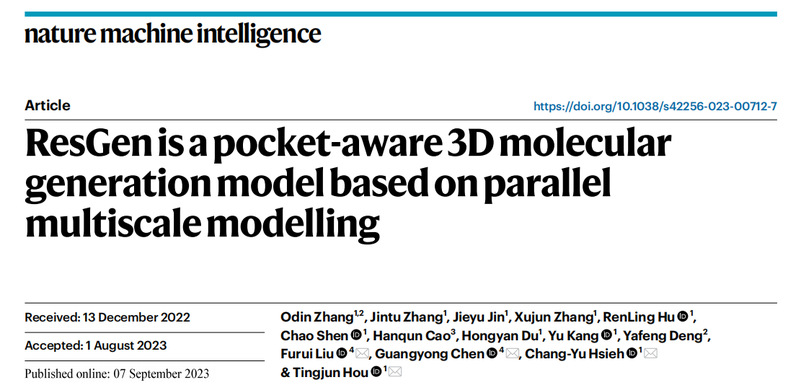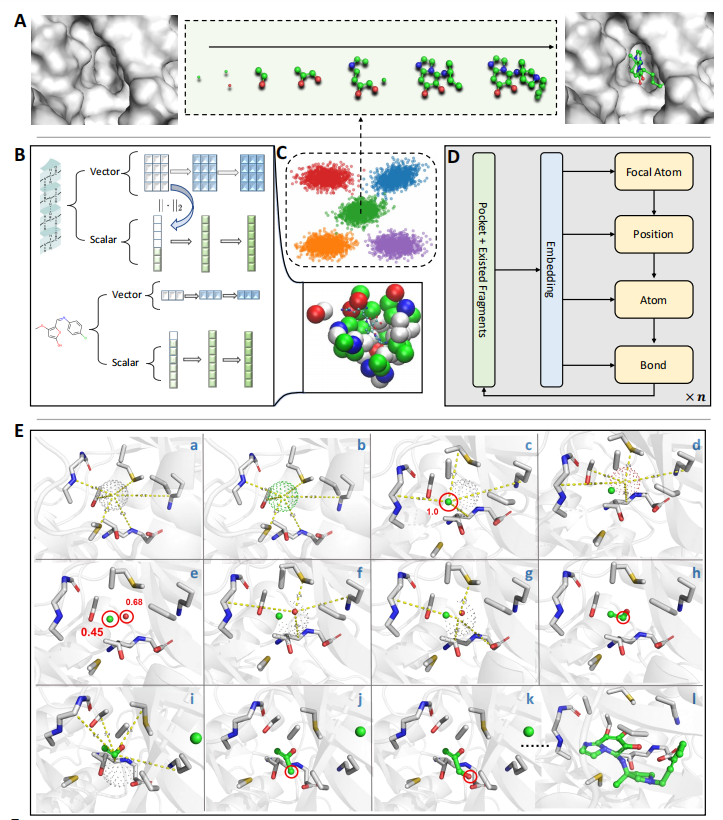The Molecular World from a 3D perspective │ The research team of CPS-ZJU developed an advanced 3D molecular generation technology
2023-10-13 | 药学院英文网
Molecular generation is a hot research direction in the field of rational drug design, and high-quality molecular generation models can effectively improve the efficiency of lead compound discovery. However, most of the molecular generation work reported to date has employed the ligand-based molecular generation (LBMG) strategy, which is to learn the chemical space in which the active molecule resides and then interpolate it to produce new molecular structures. These ligand-based molecular generation models can generate a large number of compounds with novel structures, but still have inherent methodological limitations. For example, LBMG cannot effectively consider the interaction patterns between the generating molecule and the target. In order to overcome the shortcomings of LBMG strategy, researchers are paying more and more attention to structure-based molecular generation (SBMG), that is, to generate corresponding molecules based on target structure.

On September 8, 2023, the team of Tingjun Hou and Changyu Xie from CPS-ZJU, and Guangyong Chen, Zhejiang Lab, published a paper entitled “ResGen is a Pock-aware 3D molecular generation model based on parallel multiscale modelling in the journal Nature Machine Intelligence. Inspired by the multi-scale modeling of condensed matter and statistical physics, the authors proposed a three-dimensional molecular generation model called ResGen based on protein pockets. The model adopts a parallel multi-scale modeling strategy, which can capture higher-level interactions between protein targets and ligands and achieve better computational efficiency. ResGen formulates the three-dimensional molecule generation problem with protein pockets as an autoregressive problem on two scales, namely the global scale and the atomic component scale. The results of this study show that the molecules generated by ResGen have a more rational chemical structure and possess better target affinity compared to current optimal (SOTA) methods. The experiments designed in this paper discussed the molecular generating ability of ResGen from multiple perspectives, such as the properties of generated molecules, geometric structure, performance on different targets, interaction, and the generation of protein structure predicted by AlphaFold, which also provided many inspirations for the development of molecular generating methods based on target structure in the future.

Figure 1. Schematic diagram of ResGen algorithm framewor
Haotian Zhang, a master student of CPS-ZJU, is the first author, Professors Tingjun Hou and Changyu Xie of Zhejiang University, and researchers Guangyong Chen and Furui Liu of Zhejiang Lab are co-corresponding authors.
Original link: https://www.nature.com/articles/s42256-023-00712-7
Translator: Xinyi Chen
Editor: Yichen Zhu
NEWS
-
10
2025.12
-
27
2025.11
-
25
2025.11
-
03
2025.11
-
30
2025.10
-
29
2025.10
